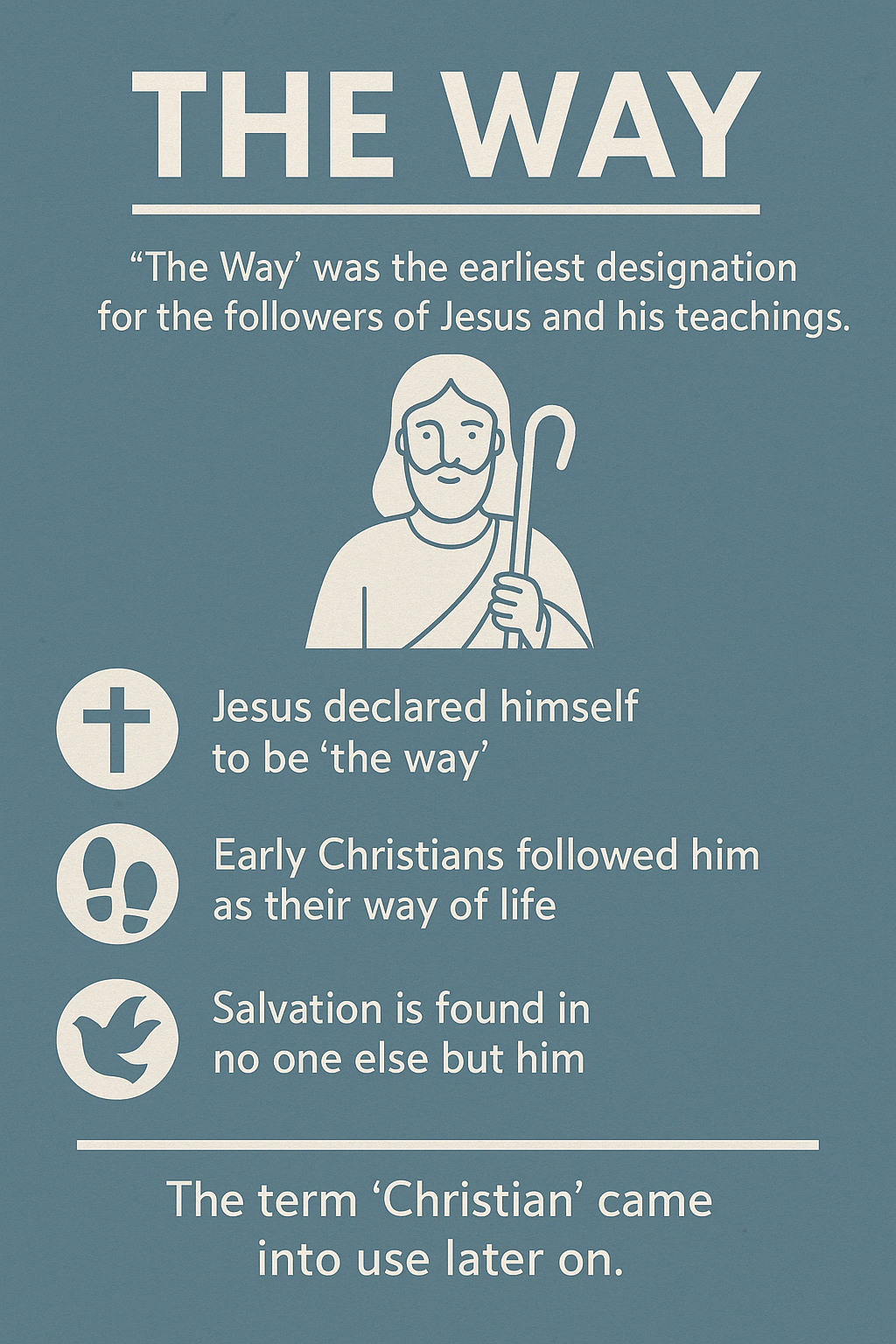Before They Were Called Christians: Following “The Way”
Introduction
Today, billions around the world identify as Christians, a word that has become synonymous with followers of Jesus Christ. However, during Jesus’ lifetime and even shortly after His resurrection, this label didn’t exist. The earliest believers referred to their faith not as “Christianity” but as “The Way.” This phrase carried profound theological and cultural implications—highlighting the direction, purpose, and countercultural path Jesus invited His followers to walk.
The Origin of “Christian”
The term Christian is first mentioned in Acts 11:26:
“The disciples were first called Christians in Antioch.”
Notably, this designation came after the death, resurrection, and ascension of Jesus. Many scholars believe it began as a label used by outsiders—possibly as a term of mockery or marginalization. The suffix “-ian” in Roman society meant “belonging to” or “follower of,” so “Christian” meant “follower of Christ.” Over time, it became a badge of identity and faith, especially during times of persecution.
The Way: A Name of Purpose
Before Antioch, Jesus’ followers referred to their belief system as The Way. This title appears several times in Acts:
- “I persecuted the followers of the Way, both men and women, and threw them into prison.” (Acts 22:4)
- “About that time there arose a great disturbance about the Way.” (Acts 19:23)
Jesus Himself declared in John 14:6:
“I am the way, the truth, and the life. No one comes to the Father except through me.”
This declaration gave the movement its original identity. Following “The Way” meant more than belief—it implied a lifestyle, a radical reorientation of life around Jesus’ teachings, humility, service, and love.
The Way vs. Religion
Calling themselves followers of “The Way” distinguished the early disciples from other Jewish sects or Greco-Roman religions. It wasn’t about temples, rituals, or priestly power. It was about transformation, discipleship, and walking the path Jesus laid out.
This path often involved:
- Radical forgiveness
- Love for enemies
- Self-sacrifice
- Standing against the status quo
- A communal, principle-centered life
When the Label “Christian” Became Normative
By the 2nd and 3rd centuries, Christian became the dominant term, especially as the faith spread beyond Jewish communities and took root in Gentile lands. As persecution mounted, being called a Christian became both a mark of courage and a legal liability.
By the 4th century, after Emperor Constantine’s conversion and the Edict of Milan (313 AD), Christianity was no longer a fringe movement—it became the state religion. Over time, institutional structures formalized what had once been a grassroots “way” into an organized religion.
Why This Matters Today
Understanding that early followers called themselves “The Way” reminds modern believers that Christianity was not originally a cultural identity, political tool, or social club. It was, and still is, a daily path of transformation modeled after the life, death, and resurrection of Jesus.
Reclaiming “The Way” means:
- Prioritizing living like Jesus over simply identifying with Him
- Walking in humility and love rather than power or prestige
- Recognizing that following Christ means movement—away from ego and toward divine purpose
Conclusion
Before believers were called Christians, they were people of The Way—a term deeply rooted in identity, direction, and purpose. Rediscovering this can help modern faith return to its authentic roots: not just professing belief in Christ, but walking as He walked, loving as He loved, and living a principled life of truth and transformation.







